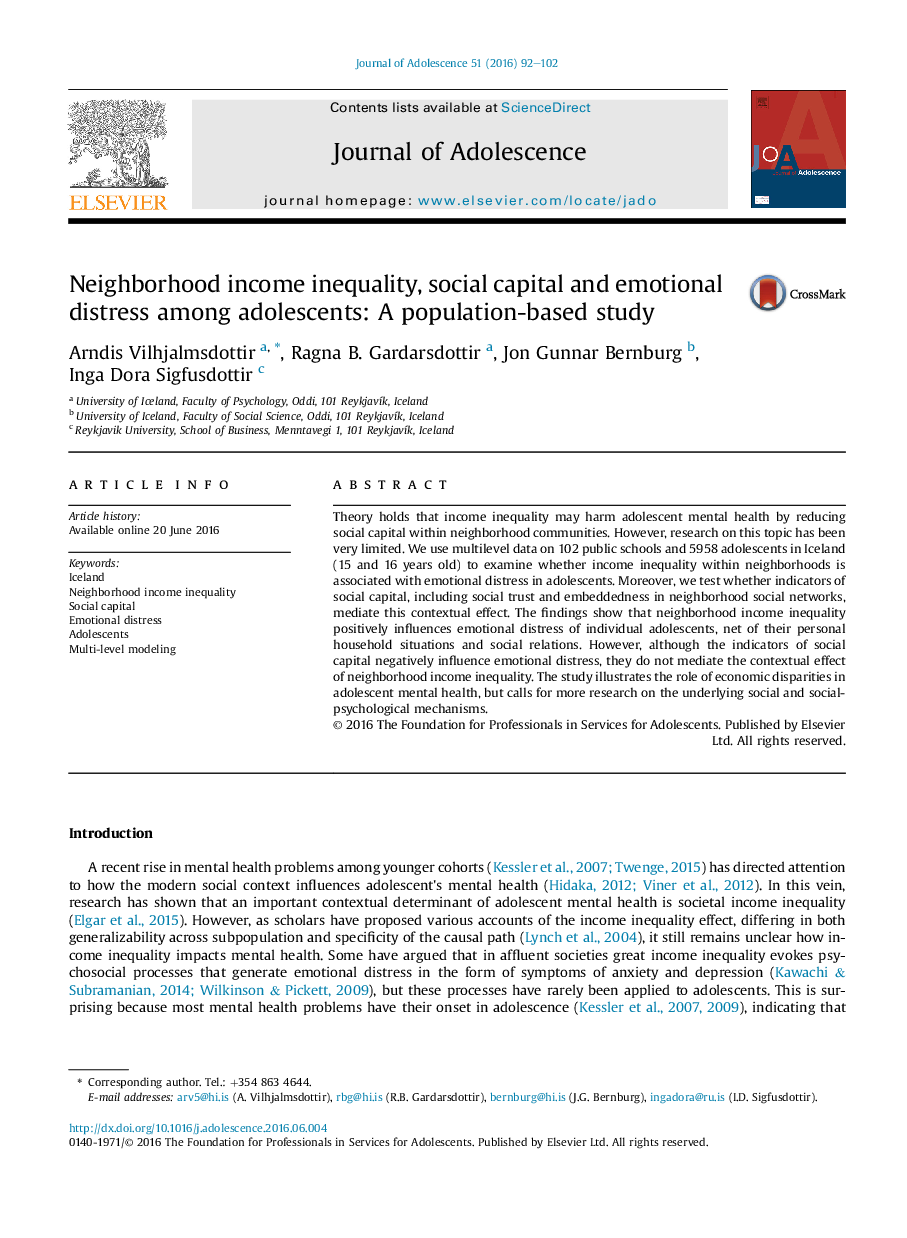| Article ID | Journal | Published Year | Pages | File Type |
|---|---|---|---|---|
| 880554 | Journal of Adolescence | 2016 | 11 Pages |
•Tests the association of income inequality and emotional distress, via social capital.•Income inequality is positively associated with adolescent emotional distress.•Social capital is negatively associated with adolescent emotional distress.•The mediational role of social capital is not supported.•Adds to the existing literature on the harmful effects of neighborhood income inequality.
Theory holds that income inequality may harm adolescent mental health by reducing social capital within neighborhood communities. However, research on this topic has been very limited. We use multilevel data on 102 public schools and 5958 adolescents in Iceland (15 and 16 years old) to examine whether income inequality within neighborhoods is associated with emotional distress in adolescents. Moreover, we test whether indicators of social capital, including social trust and embeddedness in neighborhood social networks, mediate this contextual effect. The findings show that neighborhood income inequality positively influences emotional distress of individual adolescents, net of their personal household situations and social relations. However, although the indicators of social capital negatively influence emotional distress, they do not mediate the contextual effect of neighborhood income inequality. The study illustrates the role of economic disparities in adolescent mental health, but calls for more research on the underlying social and social-psychological mechanisms.
